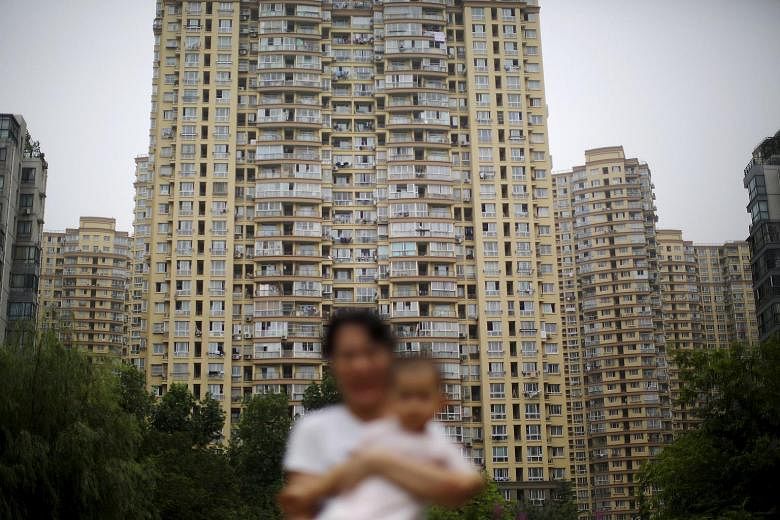BEIJING (REUTERS) - Home prices in China rose for a fourth consecutive month in August, offering hope that the ailing property sector is becoming less of a drag on the slowing economy.
But analysts do not expect a full-blown turnaround any time soon, as a huge overhang of unsold homes discourages new construction and investment in all but the biggest cities.
Average new home prices inched up 0.3 per cent in August from the previous month, according to Reuters calculations based on data released by the National Statistics Bureau (NBS) on Friday, the same pace as in July.
Price gains were recorded in 35 of the 70 cities the NBS surveyed, up from 31 in the previous month.
The property sector accounts for 15 per cent of China's gross domestic product, so even modest signs of improvement would relieve some pressure on the economy, which is expected to expand at its slowest pace in a quarter of a century this year.
But economists at Standard Chartered say sentiment in the property market is still fragile, and believe it remains one of the biggest headwinds for the economy, especially as growth in other areas slows.
A StanChart survey of 30 non-listed developers in medium-sized cities such as Hangzhou in July found that inventories are being worked off only slowly, construction activity remains weak and access to financing is becoming more difficult despite lower funding costs.
"Our surveyed developers expected further policy loosening in the second half of 2015," StanChart said.
Indeed, China relaxed its housing investment rules for the second time in two weeks on Sept 1 by slashing the downpayment level for most second-home buyers. Days earlier, China loosened rules for foreigners to buy real estate.
While home sales have picked up, growth in China's property investment in the first eight months of the year slowed to 3.5 per cent from a year earlier, the lowest level since early 2009, while new construction starts plunged by nearly 17 per cent.
A breakdown of the data also highlighted uneven trends across the country, with prices in smaller cities such as the northeastern city of Dandong continuing to weaken, albeit at a slower pace.
Since economists believe much of the inventory overhang is in second- and third-tier cities, that weakness is expected to persist.
The biggest "first-tier" cities fared better, with Shenzhen being the top performer with a rise of 5.1 per cent on the month and 31.3 percent from a year earlier.
Prices in Beijing rose 1.1 per cent from July and 3.0 per cent from a year earlier, while Shanghai prices rose 1.3 per cent and 5.6 per cent, respectively.
A string of downbeat data combined with wild price swings in China's stock markets and a surprise currency devaluation in August have fuelled fears that the Chinese economy may be slowing more sharply than was expected earlier, putting Beijing's 2015 growth target of 7 per cent at risk.
Some economists believe current growth levels are already much weaker than official data suggest.
The U. Federal Reserve held off from raising interest rates on Thursday, citing in part global uncertainties, in particular slowing growth in China and other emerging markets.

